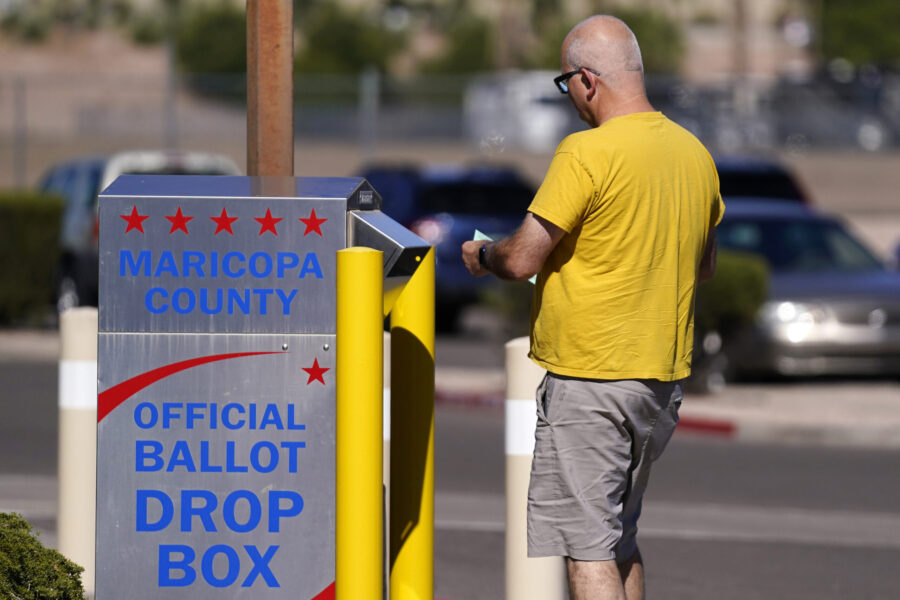Copyright mirror

UK councils missed over 10,000 bin collections every working day last year, with local authorities blaming strikes, safety red tape and even ‘warm and wet weather ’ for letting down taxpayers across the country. In 2024, 2.5 million bin collections were missed around the UK as local authorities failed to deliver on one of the most vital services to the public. Across the country, residents in Yorkshire and the Humber were the hardest hit by poor collection services overall. Analysis of council data found that over 312,000 bin collections were missed in the region—equivalent to 57 per 1,000 residents. That was more than double the rate of missed bin collections in the North East of England and Northern Ireland. You can see how your local council performed on the bin run last year by searching your postcode on this interactive map: The worst-performing council was Barnsley in South Yorkshire, which recorded by far the most missed bin collections during 2024. The shocking state of rubbish collection services in Barnsley led to the council spending £1.8m on recruiting extra staff earlier this year. Barnsley, which has been under Labour majority control for the last 50 years, said it had missed 146,000 bin collections - that’s equivalent to 2,800 every week. Cllr James Higginbottom, environment spokesperson for Barnsley council, said: “Over the last couple of years, we’ve had several periods of significant disruption to waste collections. Some of these have been due to severe weather, some due to fires at waste transfer facilities, and some have been due to our crews making adjustments to their working practices to make sure they comply with our safe systems of work.” Barnsley also claimed many of the missed bin collections were due to an increase in the weight of garden waste after ‘warm and wet weather’. The council suggested that the reason it had the worst record may be because other local authorities use different methods to count missed bin collections. Earlier this year, Barnsley approved spending £1.8m to tackle the bin collection service's poor performance, and Cllr Higginbottom said the “service is now performing well.” We submitted Freedom of Information requests to over 350 local authorities responsible for collecting bins in England, Scotland , Wales, and Northern Ireland. All but 17 of the councils supplied the relevant data showing the number of missed collections in 2024. Our exclusive ‘Bindex’ of council refuse services found that local authorities which were controlled by Labour at the start of 2024 were less reliable at collecting the bins than those controlled by the Conservatives or Liberal Democrats at the time. There were 41 missed bins per 1,000 local residents in the Labour-held areas, compared to a rate of 28 for Tory-led Town Halls and 34 for Liberal Democrat-run authorities. The number of waste-collecting authorities controlled by Reform UK or other parties at the start of 2024 was not high enough to make a fair comparison. Joanna Marchong, investigations campaign manager at the TaxPayers' Alliance, said: “The scale of missed bin collections across the UK is shocking. "Households are left wondering what they’re paying council tax for as their rubbish piles up and bin lorries fail to appear. Councils need to stop bungling basic services and start delivering what residents pay for and rightly expect.” But a spokesperson for the Local Government Association defended the record of councils, saying: "Public satisfaction with local waste services remains very high, which councils have worked hard to achieve.” “Councils carry out hundreds of millions of waste collections from households per year - not including recycling collections. These figures actually show that an overwhelming majority of bin collections were completed without complaint.” In Northern Ireland, Belfast was the council reporting the most missed bin collections, with nearly 2100, which was down slightly from 2023. Glasgow City Council reported 31,000 missed bin collections, the highest total in Scotland, but when different population totals are taken into account, Renfrewshire and Falkirk both had higher rates of missed collections. Refuse services in Swansea missed just under 30,000 bin collections last year, the highest number reported in Wales. However, the general service was far worse in Denbighshire when the differing population sizes were taken into account. Denbighshire, a rural county in North Wales, missed nearly 25,000 bin collections in 2024, making it the second-worst council in the UK behind Barnsley for the rate of missed collections per head of local population. Thurrock, North Norfolk, and Brighton & Hove were also among the worst five areas in the country for missed bin collections per local resident. Birmingham City Council reported the second-highest total of any English council, with 78,183 missed bin collections. That figure does not cover the period when the city’s bin strikes started in March this year, which is likely to push up the number for 2025. Birmingham is the largest council area in the UK, so when population is taken into account, it actually ranked 40th in the league table of missed bins per head. Gloucester, Somerset, Oxford, Lichfield, Gedling, Tamworth, Melton, and Tandridge were among the English councils that did not supply the bin collection data in response to the Freedom of Information request. In Scotland, councils in Edinburgh, East Lothian, East Dunbartonshire, and Midlothian all declined the request for data. The other councils unable to supply the information were Derry City and Strabane in Northern Ireland and Bridgend in Wales. Stockton-on-Tees council did respond to say that its refuse operatives had not missed a single bin collection in 2024. The councils which missed the most bin collections in 2024 for each nation and region are listed below: England Barnsley - 146,000 Birmingham - 78,183 Brighton & Hove - 47,614 Thurrock - 41,231 Leeds - 34,662 East Midlands Broxtowe - 14,906 Nottingham - 13,364 West Northamptonshire - 11,036 Derbyshire Dales - 10,727 South Kesteven - 8,094 East of England Thurrock - 41,231 Central Bedfordshire - 22,864 North Norfolk - 17,751 Colchester - 15,209 Cambridge & South Cambridgeshire - 12,797 London Croydon - 28,585 Bromley - 23,843 Hillingdon - 18,283 Merton - 14,302 Haringey- 14,192 North East County Durham - 25,753 Gateshead - 22,736 Newcastle - 6,250 Redcar & Cleveland - 5,899 Sunderland - 4,388 North West Manchester - 22,736 Trafford - 19,288 Salford - 18,608 Wirral - 16,323 Cheshire East - 15,654 South East Brighton & Hove - 47,614 Canterbury - 23,076 Milton Keynes - 20,695 South Oxfordshire 14,271 Elmbridge - 12,682 South West Cornwall - 33,297 Bristol - 21,001 Bournemouth, Christchurch and Poole - 19,262 Dorset - 18,344 Swindon - 17,191 West Midlands Birmingham - 78,183 Coventry - 12,758 Wolverhampton - 8,410 Dudley - 7,698 Sandwell - 7,281 Yorkshire and the Humber Barnsley - 146,000 Leeds - 34,662 Kirklees - 27,025 Wakefield - 14,250 Sheffield - 11, 816 Scotland Glasgow - 45,961 Renfrewshire - 20,739 Aberdeenshire - 20,543 Falkirk - 15,835 Highland - 13,476 Wales Swansea - 29,894 Denbighshire - 24,753 Cardiff - 18,296 Carmarthenshire - 11,522 Gwynedd - 10,644 Northern Ireland Belfast - 20,869 Ards and North Down - 5,606 Fermanagh and Omagh - 5,032 Antrim and Newtownabbey - 4,940 Mid and East Antrim - 4,308



